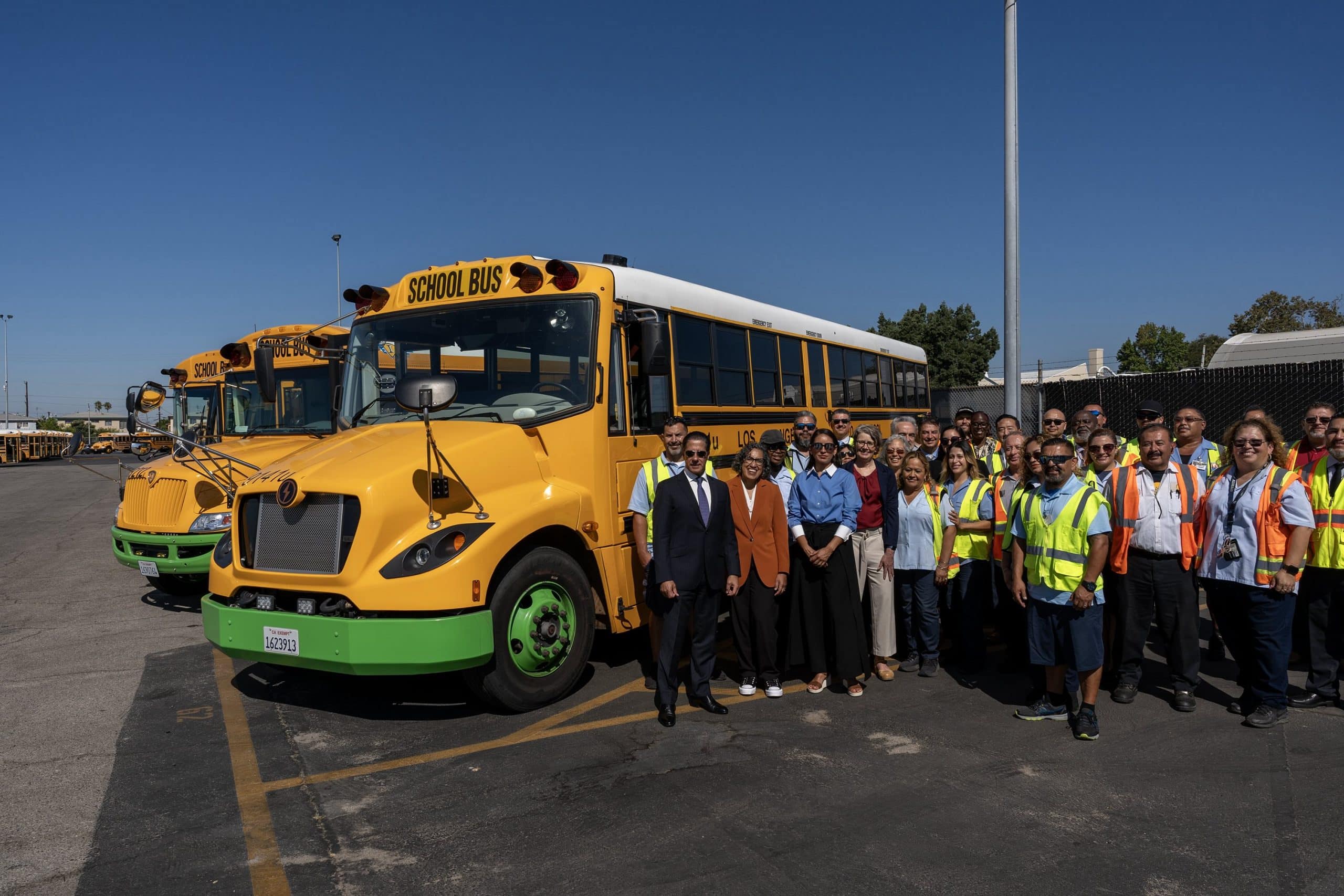California Aims for 1,000 Zero-Emission School Buses With $500 Million Funding Program

The California Energy Commission has announced the launch of its Zero-Emissions School Bus and Infrastructure Program, or ZESBI, a $500 million funding program that is expected to put 1,000 zero-emission school buses on the road. The program will provide school districts with financial and technical assistance to purchase new electric school buses and related charging infrastructure.
For fiscal year 2023-24, the program allocates $375 million to support purchases of qualifying zero-emission buses and $125 million for infrastructure and associated cost incentives. ZESBI is a partnership between the California Air Resources Board and the California Energy Commission, and is administered by CALSTART, a nonprofit organization driving the advancement of the clean transportation industry.
Selected applicants can obtain up to $375,000 to substitute internal combustion buses with zero emission school buses and would be required to scrap an old bus for every new bus bought. Awardees can also get an additional $95,000 for associated charging infrastructure, which may include solar-powered technology that exports excess energy back to the grid during times of peak demand.
In California, all school districts are required to purchase zero-emission school buses by 2035, with an extension until 2040 for those in rural communities. Thus far, California has used $1.3 billion in incentives to finance over 2,300 zero-emission buses, with 1,100 of these currently in operation. Over 300 school districts and education institutions have purchased at least one zero-emission bus, with several transitioning to a full electric fleet.
California adopted regulations in 2022 to shift away from gasoline and diesel engine vehicles, requiring automakers to sell only zero-emission vehicles by the mid of the next decade. The Advanced Clean Cars II rule requires zero-emission vehicles to constitute all new light-duty vehicle sales by 2035.
California surpassed both its zero-emission truck sales and vehicle sales goals two years ahead of schedule, according to the commission. The goal of having six percent of new trucks sold in the state to be ZEV by 2024 was exceeded by 1.5 percent in 2022, with 7,639 ZEV trucks sold. The state surpassed its passenger vehicle ZEV goal two years ahead of schedule with more than 1.5 million ZEV sales two years before the 2025 goal.
In the first three months of 2024, ZEV sales reached 102,507, the highest for the first quarter of any year, despite the share of ZEV sales slightly declining from the previous quarter.
Applications for funding under the ZESBI program are due by Sept. 30.
EnerKnol Pulses like this one are powered by the EnerKnol Platform—the first comprehensive database for real-time energy policy tracking. Sign up for a free trial below for access to key regulatory data and deep industry insights across the energy spectrum.
ACCESS FREE TRIAL